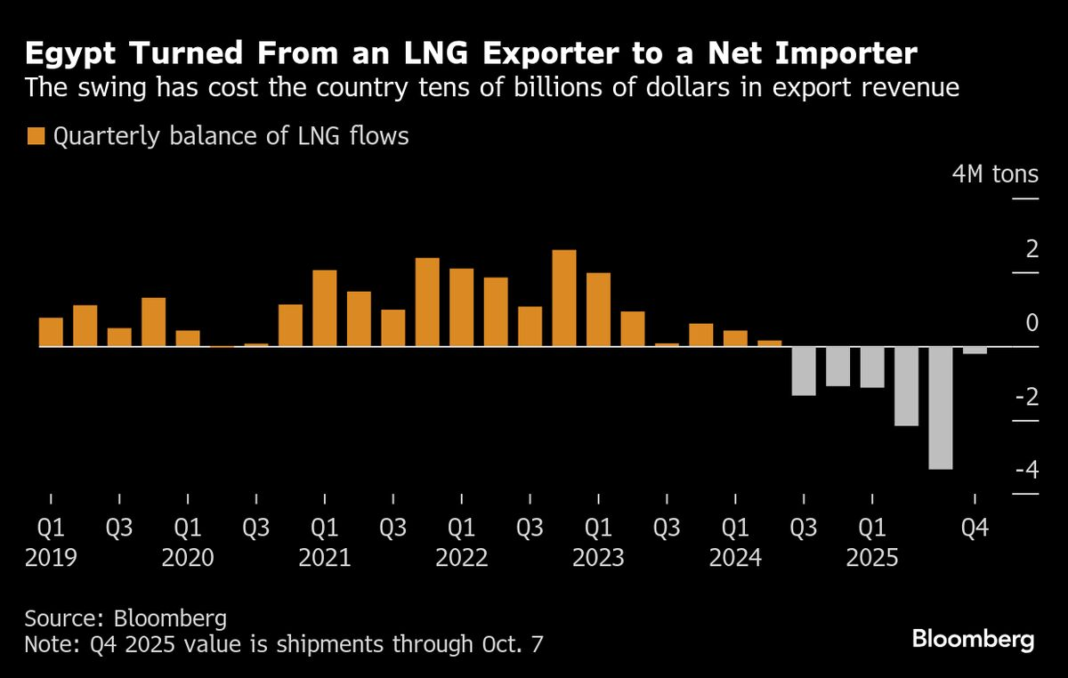Egypt’s Shifting LNG Landscape: A Response to Market Dynamics
Understanding the Context
Egypt, once a notable player in the liquefied natural gas (LNG) market, has recently found itself navigating turbulent waters. With soaring global demand over the past few years, it was anticipated that Egypt would solidify its position as a vital LNG supplier. However, a confluence of factors has led the country to ask its LNG suppliers to postpone shipments planned for the remainder of the year. This unexpected request draws attention to evolving market conditions that have impacted demand and overall energy strategy in Egypt.
The Request to Delay Shipments
The directive to delay shipments signals a significant adjustment in Egypt’s operational strategy. Originally scheduled orders made by companies exporting LNG from Egypt are now being reconsidered. Authorities cite weaker-than-expected demand as the primary reason for the shift, suggesting that the country’s consumption patterns and capacity to absorb LNG have diverged from earlier projections.
This adjustment is not just about immediate financial considerations; it reflects a broader strategic pivot. By delaying shipments, Egypt aims to manage its resources more efficiently, ensuring it isn’t left with excess that could diminish prices further. This approach allows for a more calculated engagement in the global LNG marketplace, which has seen volatility due to multiple geopolitical and economic factors.
Factors Influencing Demand
Several key factors have contributed to the dip in LNG demand in Egypt. Economic shifts, including inflation and fluctuating energy prices, have impacted consumer behavior and industrial needs. Additionally, the emergence of alternate energy sources and the growing emphasis on sustainability have reshaped energy consumption patterns globally and within the region.
Furthermore, domestic energy policies that previously leaned heavily on externally sourced LNG are being reconsidered. The Egyptian government is now focusing on boosting local energy production, including renewables and natural resources, as part of a long-term sustainability goal. This transition has been catalyzed by a global push towards greener energy solutions, pushing traditional energy paradigms into a new era.
Egypt’s Position in the Global LNG Market
In recent years, Egypt has worked diligently to enhance its role in the LNG market. Located strategically between major gas reserves in the Eastern Mediterranean and Europe, it has the potential to be a key hub for energy transit. However, the current situation demonstrates the fragility of this position. As global markets become crowded with new suppliers, including emerging exporters in East Africa and the United States, maintaining competitive balance poses a challenge.
Additionally, the market is characterized by shifting demand profiles in Europe—especially in the wake of the energy crisis prompted by geopolitical tensions. Europe’s urgent need for alternative energy sources has both benefited and complicated Egypt’s ambitions. While there is simultaneous interest in decreasing reliance on Russian gas, Egypt’s ability to deliver on commitments is critical to securing its place in this evolving landscape.
Implications for Suppliers and Investors
Suppliers, too, are feeling the impact of Egypt’s request. For companies reliant on stable demand forecasts, this development brings uncertainty. Delays could disrupt contracts, potentially leading to renegotiation of terms or financial adjustments. Investors, who previously viewed Egypt as a burgeoning opportunity in the LNG sector, may now need to reassess their strategies in light of the shifting demand landscape.
The broader implications of these developments may also ripple through the investment community that seeks to back energy projects in the region. As the Egyptian government pivots its energy strategy, attracting new investments will necessitate clear communication and robust plans highlighting future demand and growth potential.
The Road Ahead
In navigating these changes, Egypt’s roadmap will inevitably include an assessment of its energy policies and international partnerships. The request to suppliers is likely just one facet of a broader realignment of the nation’s energy strategies. Engaging effectively with suppliers and ensuring transparent dialogue will be essential in re-establishing confidence among stakeholders.
As global markets continue to react to fluctuating energy demands and emerging realities, Egypt’s ability to adapt will be crucial. By managing its LNG commitments judiciously, the country aims not just to stabilize current operations but to reforge its identity within an increasingly competitive international market.



